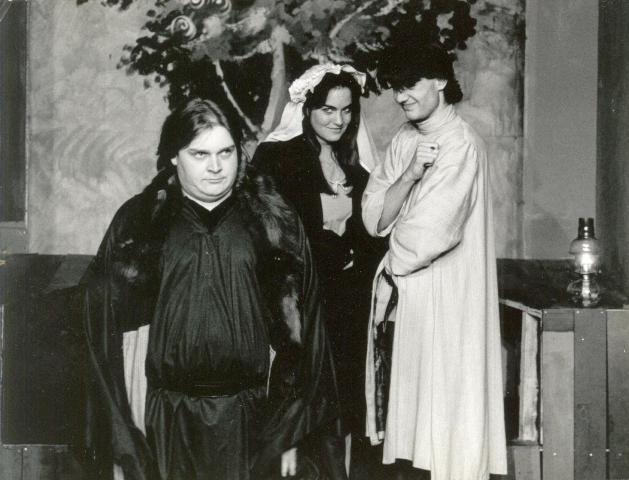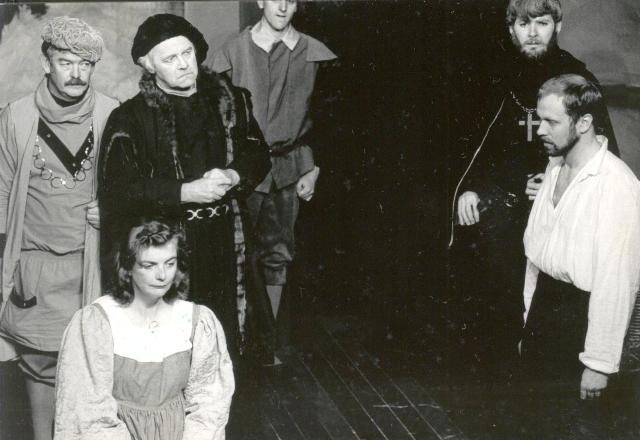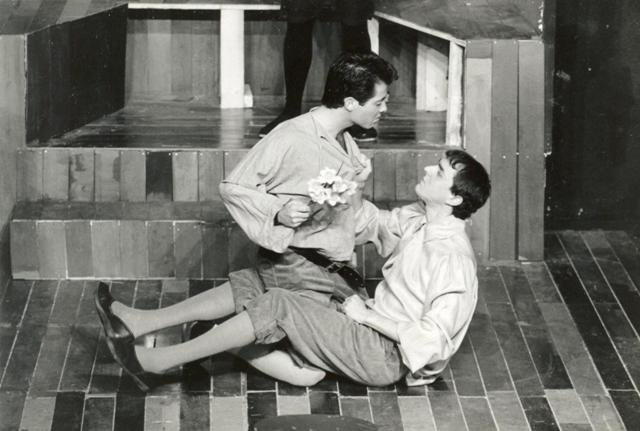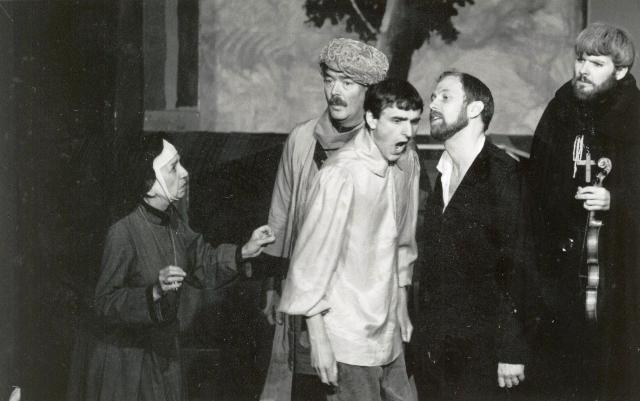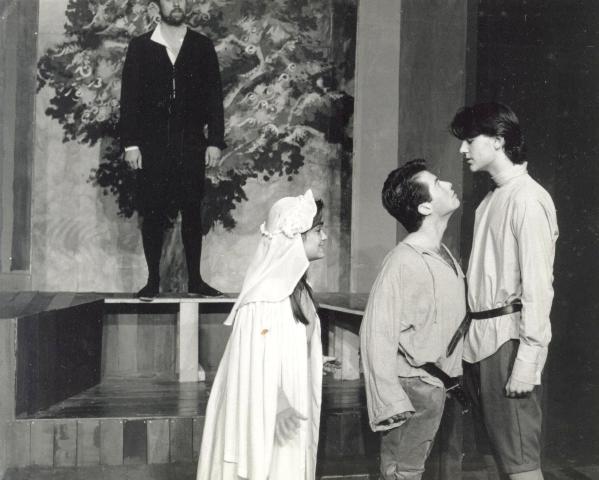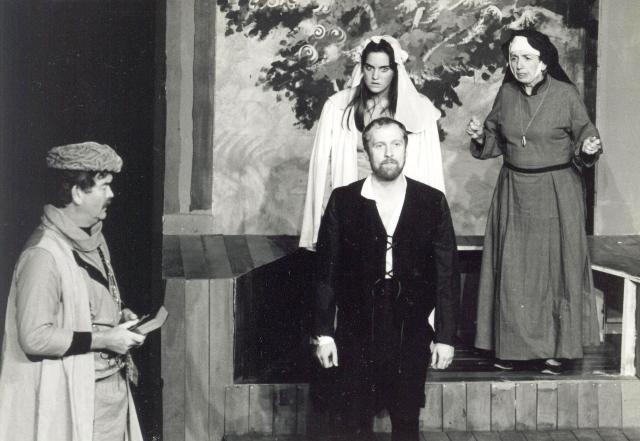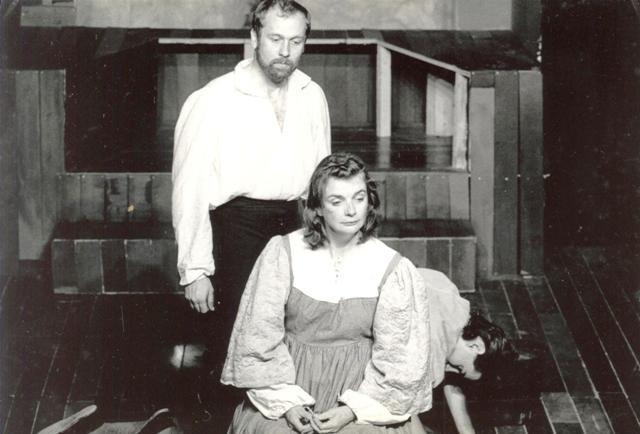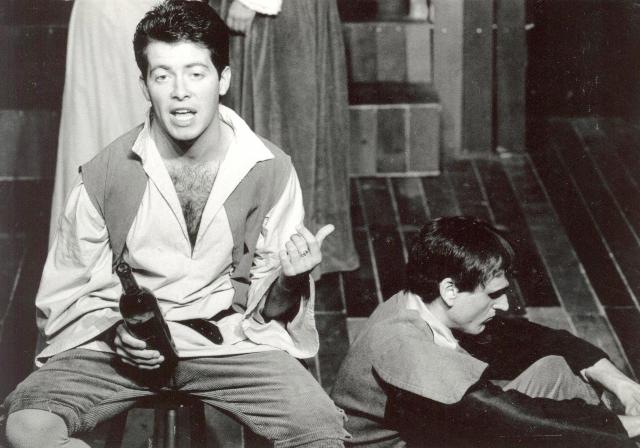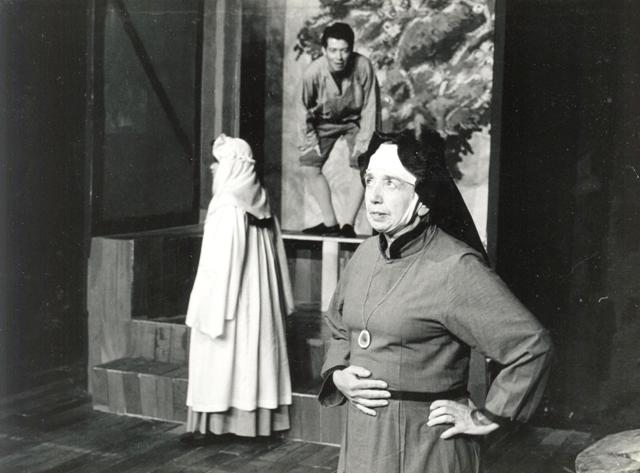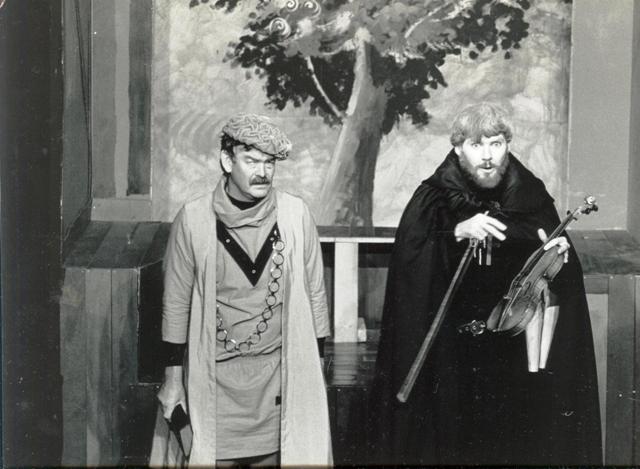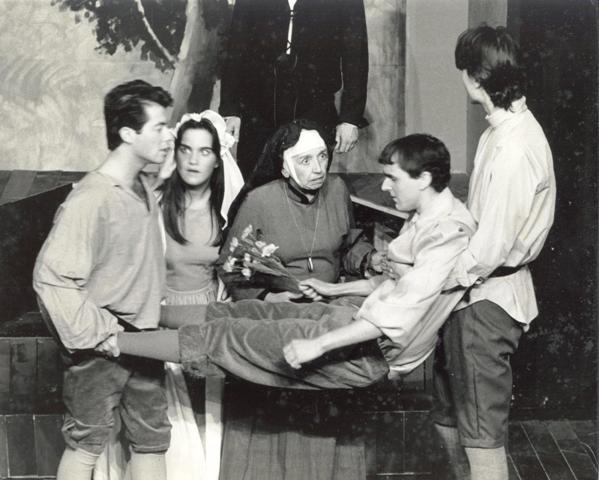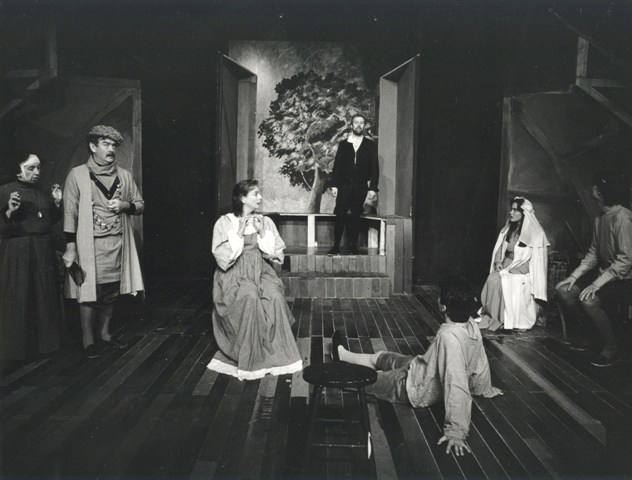The Bench Production
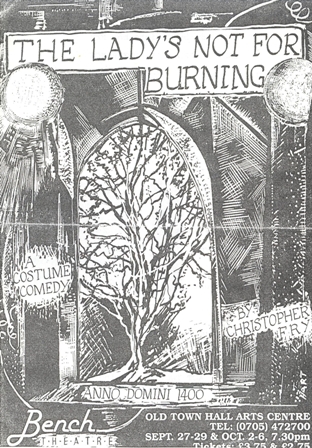
This play was staged at Havant Arts Centre, East Street Havant - Bench Theatre's home since 1977.
The Author Christopher Fry was living locally at the time of this production and Bench Theatre were lucky enough to enjoy a visit from Christopher Fry during one of the rehearsals. Having the author present is something the Bench had only ever before experienced when setting a playwriting competition, or when the author came from its own ranks.
Characters
| Richard | Grant Best |
| Thomas Mendip | David Hemsley-Brown |
| Alizon Eliot | Beth Callen |
| Nicholas Devize | Alan Jenkins |
| Margaret Devize | Janet Simpson |
| Humphrey Devize | Andrew Caple |
| Mayor Hebble Tyson | Peter Le Feuvre |
| Jennet Jourdemayne | Nicola Scadding |
| The Chaplain | Vincent Adams |
| Justice Tappercoom | Stuart Hartley |
| Townsman | Mark Wakeman |
Crew
| Director | John Scadding |
| Stage Manager | Mark Wakeman |
| Lighting Operation | Rob Finn |
| Poster | Jane Hemsely-Brown |
| Costumes | Jane Hemsely-Brown Ingrid Corrigan |
| Set Design | David Penrose |
| Front of House | Jacquie Penrose Jane Hemsley-Brown |
Director's Notes
The Lady's Not for Burning is the Spring play in a four season sequences of plays. It was written soon after the end of the Second World War.
Although he has fun in dressing up his play in medieval trappings, he was actively using a well-tried style of playwriting of the period - the Drawing Room Comedy. In these plays, time and again, a glum and unsatisfactory family is invaded by charming and eccentric strangers who cause havoc in the lives of the members of the family and leave them at the end changed in some way; some more, some less so. In the meantime the strangers themselves have also been affected. Usually the plays take place indoors - in a room leading out into a garden, through ever present French windows. The people are usually middle-class and carefully articulate, and one rough and tumble character appears towards the end. Such is the well-tried formula Mr Fry used for our play this evening.
But oh the difference! With his Middle Ages excuse he has filled out the conventional format with lustier language and weightier business - with nothing less indeed than a frenzied dance of the positive and the negative - the clash of the life wish and the death wish. But fear not gentle members, it is also and remains a beautifully constructed drawing room comedy complete with medieval French windows! I hope you enjoy them.
John Scadding
Reviews
The NewsAmanda Harlow
Olde worlde soap with a serious sting in the tail
Bubbling along like a 'Blackadder' episode crossed with a lost Shakespeare folio, 'The Lady's Not For Burning' gives the Bench Theatre a challenging autumn production. Christopher Fry's costume comedy takes some getting into for an audience with its word play and crazy action, so it is a brave choice for an amateur company where the acting has to be good enough to hold your attention. Stop concentrating for a moment in 'The Lady' and you risk coming to a surreal world where a witch and the Devil appear to have dropped in for supper.
Set in a middle-class home in 1400 "more of less, or exactly" the play hurls together a nice ordinary medieval family and two extraordinary intruders who may, or may not be, evil in human form. What follows is a mixture of ye olde worlde soap opera wrapped around serious word play about life and death. The Bench is in its second week of performance, and 'The Lady' is as good as it's going to get so this is a tight production from a cast who are almost word perfect and beginning to make sense. Performed badly, this play would be dreadful and none of the internal logic would work.
There are particularly good performances from Nicola Scadding as the witch and David Hemsley-Brown as the man who is desperate to be hanged. She particularly chats her way through an "April fit of exasperating nonsense" and convinces you that strange young women really be mistaken for hags. Also holding the attention are Beth Callon as the girl who chats to the saints and Janet Simpson as a housewife beset with chaos.
There is funny, clever and beautiful language in this play and the Bench Theatre is doing a good job of making it work. The result is probably the best amateur stab at it as you are likely to see. 'The Lady's Not For Burning' runs at the Old Town Hall, Havant until Saturday with performances at 7.30 p.m.
The News, 3rd October 1990
